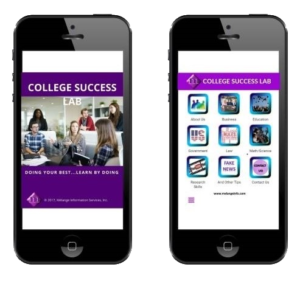Academic Advisors – Should They Know Financial Aid Basics?

Key Student Support Services – Academic Advising and Student Financial Aid
 Academic advisors on college and university campuses across the nation need to know basic financial aid information.
Academic advisors on college and university campuses across the nation need to know basic financial aid information.
Moreover, financial aid is, perhaps, one of the most problematic and complex student service areas impacting student success today.
And, academic and student financial aid advisors need to work more closely together if student success is going to be achieved campus-wide.
Of course, some campuses are more successful at doing this than others. Why? It really is reflective of the campus culture, dedication to student success, and financial profile of the institution itself.
Additionally, we must keep in mind that eligible financial aid students usually receive funds from a combination of federal, state, and private sources.
That means, on a daily basis, that the financial aid office itself has to manage and interpret 3 sets of rules, 3 sets of regulations, and 3 sets of policies including institutional.
Therefore, financial aid advisors often find themselves wearing many conflictive hats such as banker, tax expert, a family therapist, and, ironically, at times, an academic advisor.
And, as a result, many financial aid advisors find that working more closely together with academic advisors does enhance the quality of service students with financial aid problems receive.
Mission – Student Success!
Below are just a few major student aid issues academic advisors need to consider in order to further support student success on campus:
1. Financial Aid Deadlines
- Include deadline information in various academic advising social media outlets.
- Post financial aid information in strategic locations throughout their offices.
- Utilize and incorporate in academic advising/orientation/registration notifications federal resources on https://studentaid.ed.gov/sa/resources
2. Enrollment Definitions
- Also, fully understand and relate to new, continuing, and transfer students the impact of their enrollment status on continued financial aid eligibility.
- Federal student aid is available for summer course enrollment – check federal, state, and campus requirements.
3. Satisfactory Academic Progress (SAP)
- This is a federal requirement that governs credits earned in a timely fashion. All student federal aid recipients, both undergraduate and graduate, must satisfy this requirement in order to maintain their federal student aid eligibility status.
- Failure to comply could also impact institutional eligibility as well.
4. Enrollment Changes and Withdrawals
- In addition, there are financial as well as academic consequences of add/drop, course withdrawal, pass/fail, academic probation, and academic dismissal.
- Financial aid recipients can use federal/state funds to attend most study abroad and domestic study programs like the National Student Exchange.
5. Major, Degree, and Certificate Program Eligibility for Financial Aid
- Transient & non-degree students are not eligible for Title IV (federal student financial aid) funds.
- Not all certificate programs qualify.
6. Remedial, Preparatory, and Repeated Coursework
- Furthermore, remedial, preparatory, and repeated coursework have credit and time limitations in terms of continuing financial aid eligibility.
7. Scholarship Search
- Receiving external financial aid funding like outside scholarships and veterans benefits impact students’ on-campus federal financial aid resources.
- Beware of fee-based online scholarship search sites.
8. State Scholarship Renewal Criteria
- Also, state scholarship programs do differ from state to state. For example, recipients may have to maintain a certain GPA and/or accumulate a certain number of credits in order to retain state scholarship funds.
9. Institutional Student Financial Aid Funding
- Institutional awards and application procedures differ from campus to campus. Depending on the institutional financial aid award policy, this can impact federal eligibility re: meeting full financial need.
10. Federal Aid and Undocumented Students
- The federal government provides a Fact Sheet that details issues and concerns regarding the federal student aid eligibility of undocumented students. This only applies to federal funding. States do differ in terms of their individual state policies towards giving student aid to undocumented students.
As shown above, these are very critical issues. Solving financial aid problems takes collaborative efforts on behalf of academic and financial aid advisors.
Knowing general financial aid myths as well as student financial aid resources are key, very helpful, useful tools in academic advising/financial aid problem-solving scenarios.
 Given these points, it is abundantly clear that academic and financial aid advisors must work closer together in order to champion student success, now and in the future.
Given these points, it is abundantly clear that academic and financial aid advisors must work closer together in order to champion student success, now and in the future.
#collegesuccesslife #college #university #collegestudent



 Need A Personal Research Assistant?
Need A Personal Research Assistant?